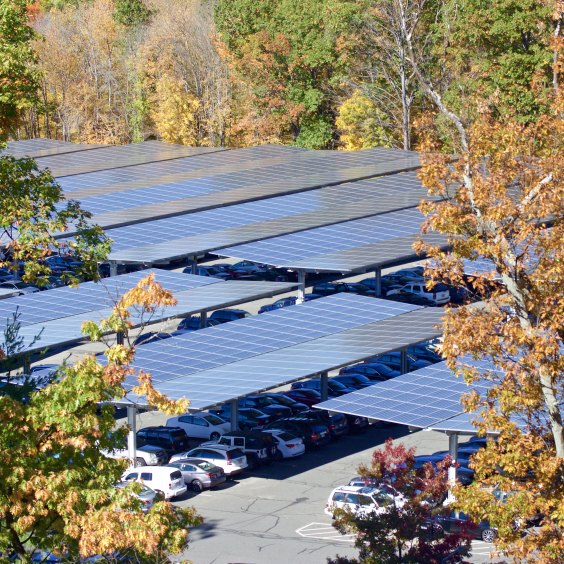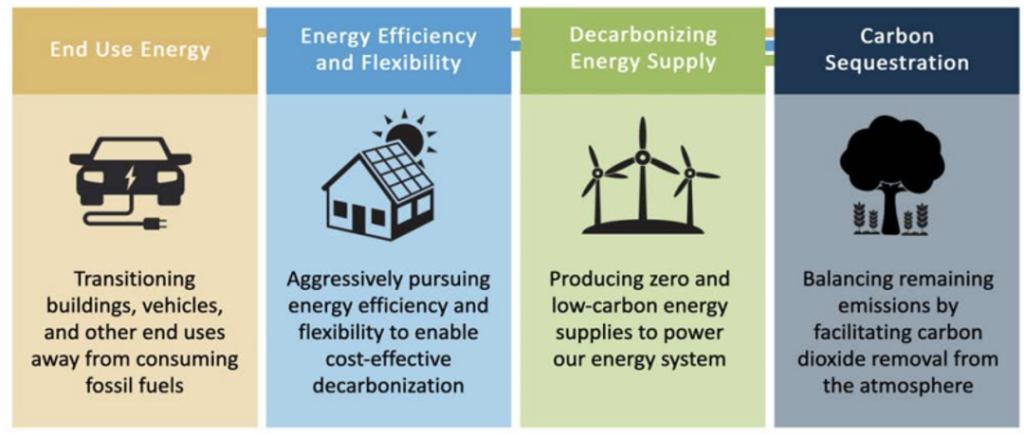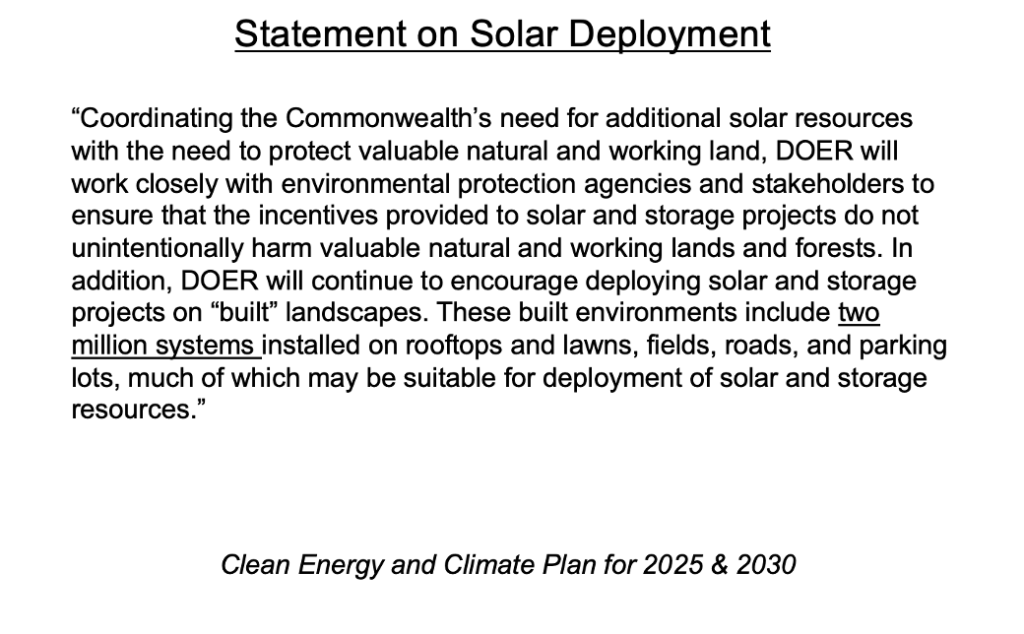Solar Bylaw Working Group Seeks Public Participation In New Survey

UMass is a leader in on-campus solar, with five parking canopy systems and five rooftop systems that produce sufficient renewable electricity to power 1,430 homes" Photo: umass.edu
by Jenny Kallick and Michael Lipinski
Amherst’s Solar Bylaw Working Group invites to the public to participate in a survey on public attitudes about solar development. The survey can be found here. The survey, along with in-person meetings and Engage Amherst conversations online will gather information to be used by the town’s Solar Bylaw Working Group (SBWG) as it works to complete a Solar Bylaw by May 31, 2023.
The survey focuses on solar development, one aspect of how the climate crisis will be addressed. Climate action plans issued by the Commonwealth and the town emphasize that generating renewable energy, including solar, is one of four pillars to be supported in achieving Net Zero:

A solar bylaw, according to our town’s Climate Action Adpatation and Resiliency Plan (CAARP, June 2021), will “guide[s] development to favorable locations and balance[s] ecological, economic, social, cultural, and other values of the community’s abundant natural lands with the need for renewable energy.” (p.54)
As the conversation begins, it is important to note that there are some distinct points of view that have already emerged. The town’s Energy and Climate Action Committee (ECAC) has taken the position that Amherst has an obligation to site a measurable portion of solar development on town land. This group has offered calculations, based on population and/or land area, that propose that the town can only fulfill its responsibility to Net Zero goals by dedicating between 145 and 335 acres to solar development.
Other solar advocacy groups argue that Amherst’s strong commitment to achieving Net Zero will only succeed if we continue to balance solar development with what is required in all aspects of this challenging transition, including the preservation of forests and natural lands for carbon sequestration. As described in the Massachusetts 2050 Roadmap: “Reducing emissions to align with Net Zero requires a holistic systems approach of complementary and integrative actions.” (p.22)
Robust participation in the survey will ensure that community perspective is heard. Let the conversation begin.
To learn more about the Commonwealth’s Clean Energy Climate Plan (CECP), here is a link to the most recent update, released in December 2022:
CLEAN ENERGY AND CLIMATE PLAN FOR 2050 (DECEMBER 2022)
This latest plan emphasizes the need to balance solar deployment with the protection of forests and working lands.

